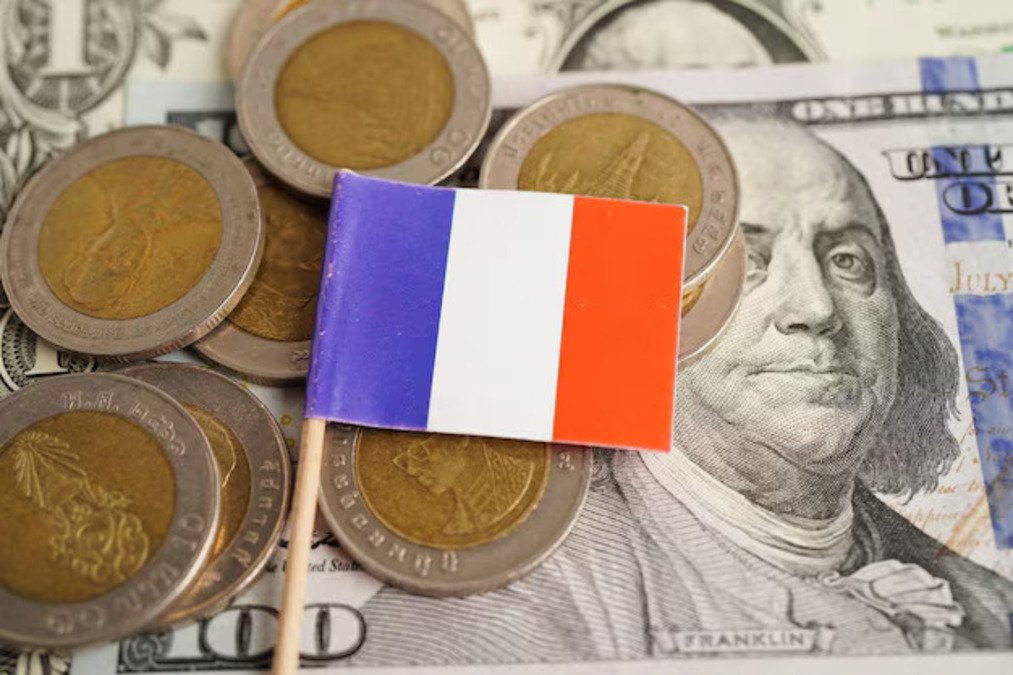The story of a college student landing on a billion-dollar idea right after graduation has been the embodiment of the American dream in the 21st century.
While Europe was slower to catch up with the tech boom, founders of Google, Meta, and Microsoft were already building empires from their dorm rooms at Harvard and Stanford. However, Europe is now making waves in the AI revolution. Paris has emerged as a leading hub, with more capital flowing through it than anywhere else on the continent.
Recent data from Dealroom, analyzed by venture capital firm Accel, shows that French AI startups are now the most well-funded in Europe and Israel.
Companies like Mistral, Owkin, and Hugging Face have collectively raised $2.3 billion, outpacing their peers in the U.K. and Germany. French universities, especially in Paris, are proving to be the driving force behind this surge in tech innovation.
Parisian Book Smarts
Arthur Mensch, the 31-year-old CEO of AI unicorn Mistral, stands as a key figure in France’s booming tech scene, driving the company to a $6 billion valuation.
Like many French founders, Mensch started his journey at a Parisian university. In fact, 57% of French tech founders came from École Polytechnique, a renowned science and engineering school located in the southern suburb of Palaiseau.
Dominique Rossin, the university’s Provost, notes that most students arrive without a clear career path. “We challenge our students to step outside their comfort zones, explore new subjects, and dive into different areas of science,” Rossin shared with Fortune. “The field of engineering is vast, and so are our students’ interests, skills, and potential.”
Rossin adds that successful founders share key traits nurtured at École Polytechnique: teamwork, problem-solving, perseverance, and energy.
The Pierre et Marie Curie campus at Sorbonne Université and Télécom Paris are also key institutions where today’s tech founders sharpen their skills.
École Normale Supérieure (ENS) stands out as the place where many of France’s tech prodigies develop their careers. About 29% of French founders gained experience there, surpassing even U.S. universities like Stanford and MIT, as well as AI giants like Google and Facebook. Arthur Mensch, Mistral’s CEO, completed his PhD at ENS in Paris’s fifth arrondissement before joining Google.
Across Europe, the race for AI funding is heating up. While French AI startups attract the most capital, the U.K. leads in the number of generative AI startups, with 221 identified by Dealroom.
Universities Become Founder Factories
Europe’s universities haven’t always been the breeding ground for founders of multibillion-dollar companies. Entrepreneurs often pointed to a cultural gap, arguing that innovation rarely started within university walls in Europe. However, Accel partner Harry Nelis, who has invested in Europe’s tech ecosystem for two decades, believes the landscape has “changed dramatically” in recent years.
He attributes this shift to “founder factories,” startups that give rise to new startups.
“In the beginning, we invested in entrepreneurs from large French companies, but they lacked prior experience,” says Nelis. “They had to reinvent the wheel many times.”
Today, Europe’s tech ecosystem has matured, with universities becoming key players in this founder factory movement. Nelis also highlights Meta’s establishment of its Fundamental AI Research (FAIR) hub in Paris in 2015 as a game changer. Since AI relies heavily on deep tech and foundational models, it’s no surprise that 38% of Europe’s founders have an academic background.
“That’s unique to the AI wave,” Nelis points out. “It wasn’t the case for the e-commerce or enterprise software waves.”
École Polytechnique’s Rossin agrees, noting that the success of alumni creates valuable networking opportunities for current students.
However, France’s political environment could pose a challenge. President Emmanuel Macron recently called an election, raising concerns that the far left or far right could gain power. The news caused France’s stock market to fall, allowing London’s exchange to regain its position as Europe’s largest.
Macron’s pro-business stance has been a key factor in attracting $16 billion in investments from tech giants like Microsoft and Amazon. A political shift could disrupt this momentum.
Still, Nelis remains optimistic. He believes that even a significant political change won’t stop France’s leadership in AI. “The AI wave is powerful enough to transcend politics,” he says.
